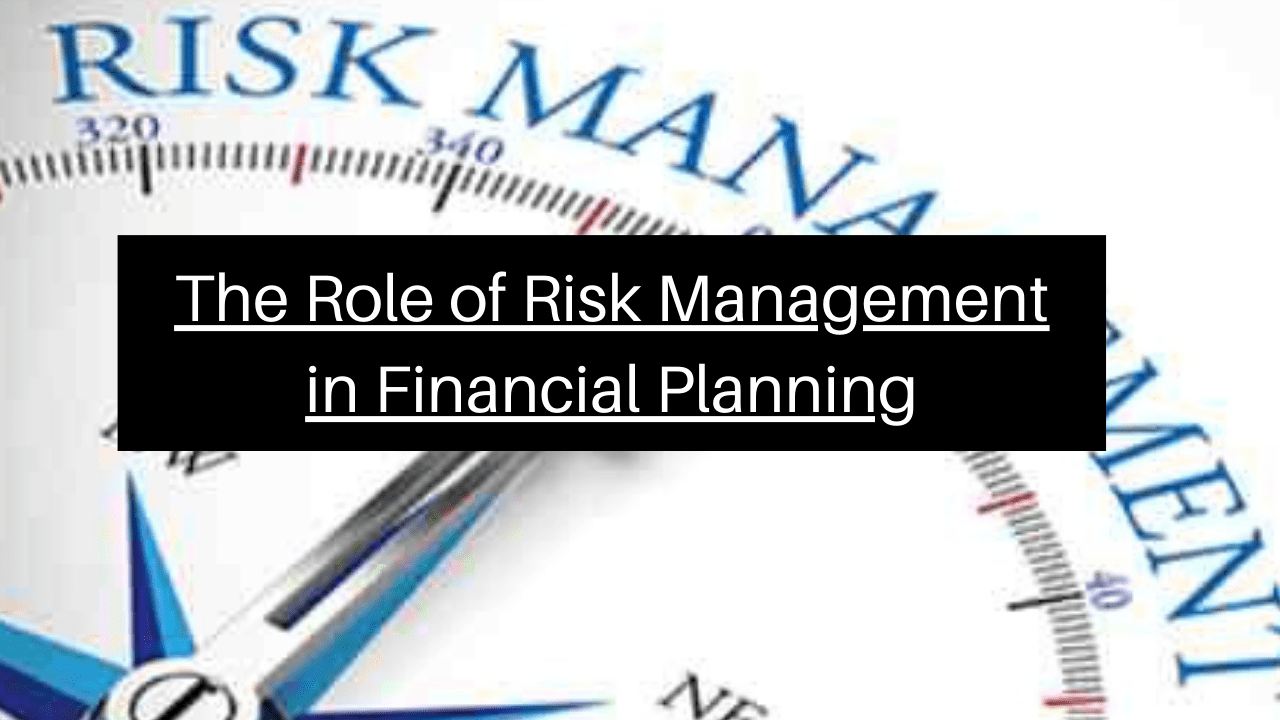
1. Introduction
Financial planning is essential for achieving financial goals and securing a stable future. Within financial planning, risk management plays a vital role in protecting assets, mitigating potential losses, and ensuring financial stability. This article explores the significance of risk management in financial planning and provides strategies to manage risks effectively.
2. Understanding Risk in Financial Planning
Risk refers to the uncertainty and potential for financial loss or negative outcomes. In financial planning, various types of risks, such as market risk, inflation risk, interest rate risk, and credit risk, can impact financial stability and investment returns.
3. Importance of Risk Management in Financial Planning
Risk management is crucial in financial planning for several reasons. It helps protect assets and investments from potential losses, ensures financial stability during unforeseen events, and minimizes the impact of financial risks on long-term goals.
4. Risk Assessment and Identification
To effectively manage risks, it is essential to assess individual risk tolerance and identify potential risks. Evaluating risk tolerance helps determine an individual’s comfort level with taking risks, which guides the overall investment and financial strategy. Identifying potential risks involves analyzing market conditions, economic factors, and personal circumstances.
5. Risk Mitigation Strategies
Implementing risk mitigation strategies is key to managing potential risks. Diversification of investments across different asset classes and sectors helps reduce exposure to specific risks. Adequate insurance coverage, such as life insurance, health insurance, and property insurance, provides financial protection against unexpected events. Maintaining emergency funds ensures a financial buffer to handle unforeseen expenses or job loss.
6. Regular Monitoring and Review
Risk management is an ongoing process that requires regular monitoring and review. Evaluating changing risk factors, market conditions, and personal circumstances allows for timely adjustments to the financial plan. Regular reviews with financial advisors or professionals help ensure that the financial strategy remains aligned with the individual’s goals and risk tolerance.
7. The Role of Professionals in Risk Management
Financial advisors and insurance agents play a crucial role in risk management. Financial advisors provide guidance in assessing risk tolerance, creating a diversified investment portfolio, and adjusting the financial plan as needed. Insurance agents assist in identifying appropriate insurance coverage to mitigate specific risks and protect assets.
8. Incorporating Risk Management into Financial Goals
When setting financial goals, it is essential to balance risk and return. Understanding the relationship between risk and potential rewards helps individuals make informed decisions about investment choices. Long-term wealth preservation should also be a consideration, focusing on minimizing risks that could jeopardize financial security over time.
9. Conclusion
Risk management is an integral part of financial planning, ensuring the protection of assets, mitigating potential losses, and maintaining financial stability. By assessing risk tolerance, identifying potential risks, implementing risk mitigation strategies, and regularly monitoring the financial plan, individuals can secure their financial future and work towards achieving their goals.
10. FAQs
Q: Can risk be completely eliminated in financial planning? A: Risk cannot be entirely eliminated, but it can be managed and minimized through effective risk management strategies.
Q: Is risk management only for investors? A: No, risk management is essential for anyone engaged in financial planning, including individuals, families, and businesses. It helps protect assets and ensure financial stability for all.
By incorporating risk management into financial planning, individuals can navigate uncertainties, protect their investments, and secure their financial future.
Related
Is Everlasting Stocks Worth It?
Side Hustle And Passive Income: A Comprehensive Overview
Education Planning for Children: Securing Their Future
